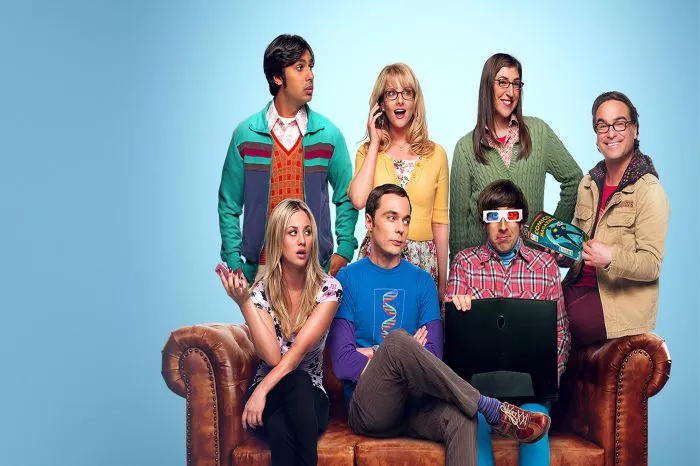Since its premiere in 2007, “The Big Bang Theory” has become a cultural phenomenon, captivating audiences with its blend of humor, heart, and geeky charm. Created by Chuck Lorre and Bill Prady, the sitcom follows the lives of four socially awkward scientists and their interactions with the world around them. Over the course of 12 seasons, “The Big Bang Theory” has left an indelible mark on television history, earning critical acclaim, numerous awards, and a devoted fanbase. In this detailed review, we’ll explore the various aspects of the show, from its characters and humor to its cultural impact and legacy.
Characters: A Quirky Ensemble Cast
At the heart of “The Big Bang Theory” is its ensemble cast of characters, each with their own distinct quirks, personalities, and story arcs. Leonard Hofstadter, played by Johnny Galecki, serves as the show’s protagonist, a socially awkward experimental physicist with a penchant for overthinking and self-doubt. His roommate, Sheldon Cooper, portrayed by Jim Parsons, is a brilliant but socially inept theoretical physicist with an obsessive-compulsive personality and a love of comic books, video games, and trains.
Rounding out the core group are Howard Wolowitz, an aerospace engineer with a penchant for cheesy pickup lines and a mother who is never seen but often heard, and Rajesh Koothrappali, an astrophysicist from India who struggles with selective mutism around women. Together, these characters form a tight-knit group of friends whose interactions drive much of the show’s humor and heart.
Humor: Nerdy Jokes and Pop Culture References
One of the defining features of “The Big Bang Theory” is its clever humor, which blends witty wordplay, slapstick comedy, and pop culture references with a healthy dose of nerdy charm. The show’s writers deftly weave in jokes about science, technology, comic books, and video games, appealing to both die-hard geeks and casual viewers alike.
Whether it’s Sheldon’s “Bazinga!” catchphrase, Leonard’s attempts to navigate the complexities of dating, or Howard’s exaggerated attempts to impress women, the humor of “The Big Bang Theory” is both smart and accessible, drawing laughs from a wide range of audiences.
Relationships: Romance and Friendship
Central to the narrative of “The Big Bang Theory” are the relationships between its characters, which evolve and deepen over the course of the series. From the will-they-won’t-they dynamic between Leonard and his neighbor Penny, played by Kaley Cuoco, to the unlikely friendship between Sheldon and Penny, the show explores the complexities of love, friendship, and social interaction with warmth and humor.
As the characters navigate the ups and downs of romance and friendship, viewers are treated to heartfelt moments of connection and growth, as well as plenty of comedic misunderstandings and mishaps. Whether it’s Howard and Bernadette’s whirlwind romance, Sheldon and Amy’s slow-burning courtship, or Raj’s quest for love, the relationships on “The Big Bang Theory” provide emotional depth and resonance amidst the laughter.
Cultural Impact: Celebrating Geek Culture
Beyond its entertainment value, “The Big Bang Theory” has had a significant cultural impact, helping to bring geek culture into the mainstream and fostering a greater appreciation for science, technology, engineering, and mathematics (STEM) fields. The show’s portrayal of scientists and nerds as relatable, likable characters has helped to dispel stereotypes and challenge societal perceptions of intelligence and social awkwardness.
Moreover, “The Big Bang Theory” has inspired countless viewers to embrace their own geeky interests and passions, whether it’s comic books, cosplay, video games, or science fiction. The show’s influence can be seen in the proliferation of geek-themed merchandise, conventions, and fan communities, as well as its lasting legacy as a beloved television classic.
Legacy: A Lasting Impact on Television
As “The Big Bang Theory” comes to a close after 12 successful seasons, its legacy as one of the most beloved sitcoms in television history is undeniable. The show has earned critical acclaim, numerous awards, and a dedicated fanbase around the world, cementing its status as a cultural touchstone of the 21st century.
With its endearing characters, clever humor, and heartfelt storytelling, “The Big Bang Theory” has left an indelible mark on the television landscape, paving the way for future comedies to explore the complexities of geek culture and celebrate the power of friendship and love. While the show may have come to an end, its impact will continue to be felt for years to come, reminding viewers of the enduring power of laughter, connection, and the human spirit.
A Fond Farewell to “The Big Bang Theory”
In conclusion, “The Big Bang Theory” stands as a testament to the power of laughter, friendship, and geeky charm. With its memorable characters, clever humor, and cultural impact, the show has left an indelible mark on television history, earning its place among the pantheon of classic sitcoms. As fans bid farewell to Leonard, Sheldon, Penny, and the rest of the gang, they do so with fondness and gratitude for 12 unforgettable seasons of laughter, love, and nerdy adventures.
Related Topics:
Why is Big Bang theory show called that?
Bridgerton’s Black Queen: Diversity in Historical Drama
How Much Does Cannes Film Festival Cost?

